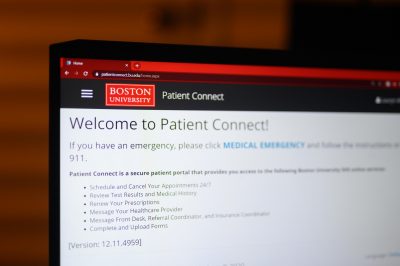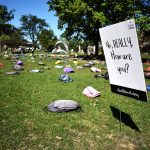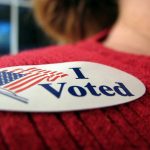
Since returning to campus for the Fall semester, Boston University’s Healthway website has seen some technical problems. ILLUSTRATION BY LAURYN ALLEN/ DAILY FREE PRESS STAFF
As Boston University’s Healthway website saw an influx in users in August, Patient Connect has faced technical difficulties. And as more students return to campus, test results are being returned at a slower pace.
Tracy Schroeder, vice president of Information Services and Technology, said there have been multiple instances in which the Healthway portal ran slower, and the entire Patient Connect website experienced a two-hour outage on Aug. 26.
Michelle Ramiz, a senior in the College of Arts and Sciences, said she experienced difficulties scheduling testing appointments. She made several attempts to schedule at different locations, each of which resulted in a technological failure.
“If the system isn’t working, or even just temporarily not functioning, for example, that’s not a good time for BU,” Ramiz said. “As more people are currently arriving on campus, more people are requiring to be tested.”
To account for the increased website activity, Schroeder said IS&T has made improvements to the website’s infrastructure and software. She added that these changes should help “better deal with the load.”
An update was made to the website Wednesday night, Schroeder said, and additional updates will attempt to optimize the site. Students experiencing problems, she said, should reach out to IS&T.
Students have also been receiving email reminders to fill out their attestation survey, sometimes despite having already filled it out for the day. Schroeder said this is how the system is meant to work.
“It’s not smart,” Schroeder said. “It’s just a reminder. It’s going to remind you whether you need to be reminded or not.”
The average sample processing time on Wednesday for BU’s COVID-19 tests was 37.6 hours, 9.9 hours more than the cumulative average of 27.7 hours since testing began July 27.
BU spokesperson Colin Riley said this difference is not something to worry about, and that the longer processing times had been anticipated by BU due to the nature of the testing process.
“It’s typical processing, just ramping up with training new people,” Riley said, “making sure that they’re properly trained and that you are able to maintain the highest quality assurances. These are all professionals. We are really fortunate.”
Certain testing sites on campus have seen greater scheduling than others. The Rajen Kilachand Center for Integrated Life Sciences, for example, has been getting fully booked before other sites like the 808 Gallery.
Riley said the increase in result return times is likely due to the influx of returning students who are now populating campus.
“I don’t see anything unusual and the most important thing is the quality of the tests and the validity of the results,” Riley said, “which we’re very pleased with.”
The tests are being returned as fast as possible, Riley said.
BU also implemented new testing kits that contain a thinner, longer swab separate from the tube, whereas the previous tests had a shorter, larger swab attached to the cap of the tube. The test is administered in the same manner.
Riley said the change is related to the availability of the new swab, as BU will continue to have a “high need” for COVID-19 testing kits throughout the semester.
Director of COVID-19 testing Catherine Klapperich wrote in an email that students can routinely expect to see similar changes.
“You will see many types of swabs this semester,” Klapperich wrote. “They all work the same.”
An email from the Dean of Students was sent Wednesday to some students, informing them that they were currently not in compliance with the University’s COVID-19 guidelines.
“Until you address this issue, your Terrier ID Card will be shut off,” the email stated. “In addition, you will not have access to the University’s wi-fi network.”
The email then warned of “additional administrative actions” if the students did not take action to become compliant by either scheduling a test or completing their symptom attestation.
A second email was sent from DOS later Wednesday, stating that students who received the message may have previously been non-compliant, but did not need to take further action if their badge was now green.
Contradicting the previous message from DOS, the second email stated the recipients’ Terrier Card and Wi-Fi access remained unchanged, but that future instances of non-compliance “may result in those services being modified.”
Melissa Ellin contributed to the reporting of this article.




